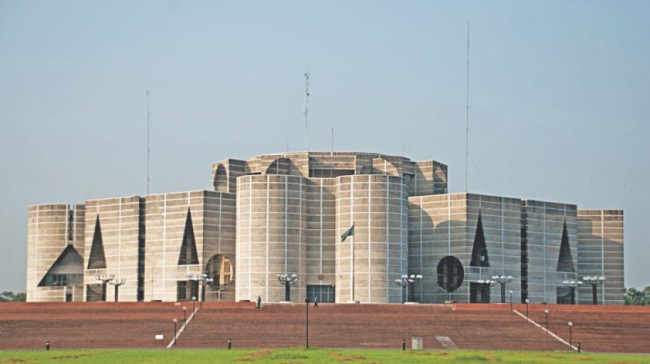
DHAKA, June 7, 2022 (BSS) - Both treasury and opposition lawmakers today recalled the historic Six-Point Day and the movement lunched by Bangabandhu Sheikh Mujibur Rahman on the basis of six-point demand had ultimately pave the way of Independence of the country.
Peoples of all strata had accepted the 6-point demand which was a Magna Carta of the Bengalis demanding autonomy to the then East Pakistan, they said while participating in the discussion marking the historic Six-Point Day on June 7 at the Jatiya Sangsad here on Tuesday.
Participating in the discussion, ruling party leader Amir Hossain Amu said the six-point day helped to pave a way of independence of the country.
"Six-point demand, a charter of demand for seeking autonomy of the East Pakistan, was the foundation of the independence," he said, adding, "The decision of Bangabandhu of launching the six-point demand on June 7 in 1966 was time-befitting."
Terming June 7 as the historic day, another ruling party leader Tofail Ahmed said the whole nation was furious and a total of eleven people were sacrificed their lives on behalf of the historic demand."Bangabandhu had marched ahead toward the independence of the country step by step through launching the historic six-point demand," Tofail elaborated.
The six-point demand was an inspiration of the Bangalee nation, senor ruling party leader said, adding: the six point demand ultimately became eleven-point demand and then these demand turned to one-point demand.
Eleven people, including Manu Mian, Shafique and Shamsul Haque, were shot dead by the police and paramilitary EPR on June 7, 1966 in Dhaka and Narayanganj during a hartal called for the release of Sheikh Mujibur Rahman and other leaders detained for launching the Six-Point Movement against the then barbaric ruling clique.
Sheikh Mujibur Rahman launched his historic six-point political and economic programme in Lahore on February 5 in 1966, aiming at attaining greater autonomy for the then East Pakistan in the backdrop of exploitation and discrimination by the then Pakistani rulers.
Awami League lawmakers including Sheikh Selim, Abul Kalam Azad and Kazi Feroz Rashid, among others, participated in the discussion.